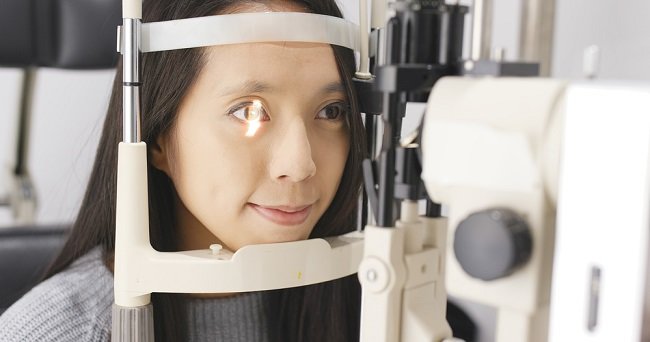Diphencyprone (DPCP) is a drug that can be used to treat alopecia areata. This drug has a liquid dosage form that will be applied to the bald area. Diphencyprone can only be given by a doctor.
When used to treat alopecia areata, diphencyprone will trigger an allergic reaction, such as contact dermatitis. Through this mechanism, diphencyprone is expected to stimulate hair growth.

In addition to treating baldness due to alopecia areata, diphencyprone can also be used in the treatment of warts due to infection with the human papillomavirus (HPV) virus and melanoma on the skin.
Diphencyprone is usually only used if the patient's condition is not successfully treated with other treatment methods.
Diphencyprone (DPCP) trademarks:-
What is Diphencyprone (DPCP)?
| group | Immunotherapy |
| Category | Prescription drugs |
| Benefit | Stimulates hair growth |
| Used by | Adults and children |
| Diphencyprone for pregnant and lactating women | Category N: Not categorized yet Diphencyprone is not recommended for use in women who are pregnant, nursing, or are planning a pregnancy. This is because the effectiveness and side effects of this drug have not been studied in pregnant women. It is also not known whether diphencyprone can affect fertility. |
| Drug form | Liquid |
Warnings Before Using Diphencyprone (DPCP):
- Do not use diphencyprone if you have a history of allergy to this drug or to other immunotherapy drugs.
- The safety of diphencyprone is not known in pregnant women, nursing mothers, or women who are planning a pregnancy. Avoid using this drug in these conditions.
- Tell your doctor about all your medical history and medications you are taking.
- Avoid exposure to direct sunlight, and do not use ultraviolet lamps (sunbed) to darken the skin (tanning) while using diphencyprone.
- Patients need to be informed of the stages of therapy and complaints that may be felt, such as the appearance of itching or redness of the skin when undergoing therapy with diphencyprone.
- Be careful when using accessories, including such as hats or cloth, to protect yourself from the sun while undergoing therapy with diphencyprone. This is because the chemicals contained in the drug can stick to the surface of the clothes.
- Immediately see a doctor if side effects occur after using diphencyprone.
Dosage and Instructions for Use of Diphencyprone (DPCP)
Diphencyprone can generally be given to adults and children. Keep in mind, diphencyprone is only given by a doctor and should not be used carelessly.
The dose of diphencyprone will be determined based on the type of skin disorder to be treated, the severity of the condition, and response to therapy. Diphencyprone will cause an allergic reaction which is characterized by the appearance of a red and itchy rash that will last for 36–48 hours.
The stages that patients will undergo when using diphencyprone are as follows:
Stage 1
Diphencyprone in strong doses (generally with a concentration of 2%) is applied to a small area of the skin, usually on the upper arm. Allergic reactions will generally appear within 2-3 days after the first use.
If no allergic reaction occurs, a lower dose of diphencyprone (0.1%) will be applied to the same area 2 weeks later and repeated every 2 weeks until an allergic skin reaction occurs.
Stage 2
If an allergic reaction has occurred, the next step is to determine the right dose to cause the desired allergic reaction in the skin. The doctor will apply a very low dose of the drug (usually at a concentration of 0.001%) on a small area of the skin.
The dose given will be increased every week until the desired reaction occurs in the skin.
Stage 3
After knowing the right dose, diphencyprone will be applied to the problematic skin every 1-2 weeks.
The duration of use of diphencyprone varies for each patient, depending on how quickly the patient's body responds to the drug, as well as the severity of the condition. Generally, diphencyprone is given for 6–8 months.
Diphencyprone administration will be discontinued if the condition being treated has healed. However, in some people with alopecia areata, treatment with diphencyprone may need to be repeated if baldness occurs again.
How to Use Diphencyprone (DPCP) Correctly
Diphencyprone should only be given by a doctor or medical personnel under the supervision of a doctor. Follow the doctor's instructions when undergoing therapy with diphencyprone.
The skin surface needs to be cleaned and dried before starting the treatment procedure. Administration of diphencyprone generally takes about 10-15 minutes.
During use of the drug, protect the skin that has been smeared with diphencyprone from direct sunlight for about 6-8 hours. For example, if you are using diphencyprone to treat baldness on the head, it is advisable to cover the head when outdoors, for example with a hat.
Avoid touching the skin that has been smeared with diphencyprone for 24 hours. If touched, wash hands immediately. After 6–24 hours, wash the skin that has been smeared with diphencyprone.
Sometimes an allergic reaction caused by this drug can occur excessively and cause complications. Therefore, the doctor may prescribe a corticosteroid ointment with a very strong level to anticipate the occurrence of an allergic reaction. Doctors will usually provide directions and explanations about the use of this additional drug.
Diphencyprone should be stored in a dark glass bottle, kept in a closed place, away from direct sunlight, and out of reach of children.
Side Effects and Dangers of Diphencyprone (DPCP)
Diphencyprone can cause side effects such as:
- Scars due to inflammation of the skin
- Eczema that is too severe, characterized by skin redness, crusting, itching, blisters, and pus discharge
- Skin changes color to black (hyperpigmentation) or pale white (hypopigmentation)
In addition, a number of other, more serious side effects can also arise from diphencyprone, including:
- Eczema that spreads all over the body
- Vitiligo
- Enlarged lymph nodes
- Pompholyx
- Other allergic reactions, can be flu-like complaints or erythema multiforme
- Urticaria
- Headache
- Heart beat
See your doctor immediately if you experience any of the side effects mentioned above during treatment with diphencyprone.









